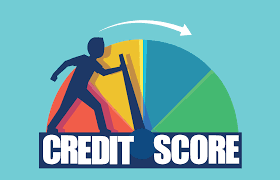A good credit score is one that lenders and creditors approve of: a FICO Score between 670 and 739. There are other types of credit scores, such as auto insurance scores and rental history scores, but the most well known is FICO. Although banks and other creditors sometimes use credit scoring models made by companies like VantageScore (which will score you between 501 and 990), the FICO Score is the most widely used.
Credit scores are crucial because they determine whether or not you can borrow money, and if so, how much and what rate of interest you’ll pay for doing so. They also help creditors to know how risky it is to extend credit to a particular individual.
Many people think that the only way to improve their credit score is by making payments on time, but that’s just part of the story. Delinquent payments and collections accounts are fully reported to each credit bureau, so in addition to paying your bills on time you should work to keep your reports clean. Here are some other ways to improve your credit score over time.
Make all of your payments on time, every time
Delinquent payments are fully reported to the credit bureaus and stay on your reports for seven years. Missing even one payment can drop a FICO score by up to 100 points! If you need to make a late payment, call the creditor to find out where you can send your check.
Don’t apply for new credit too often
Every time you apply for credit, it’s recorded as a “hard inquiry” on your reports, which will lower your FICO score by a few points (usually less than five). Your score bounces back quickly, but if you’re trying to build credit from scratch, take it slow and you’ll get there.
Don’t cancel your unused credit cards
Although canceling a credit card may lower your total available lines of credit and hurt your utilization ratio (the amount of debt you have versus the amount of available credit you have), keeping an account open can help to maintain a higher credit score.
Keep your credit card balances below one third of the limit on each card
It’s best to pay off all debts, but if you need to use credit, keeping your balances low improves your FICO score by showing creditors that you’re responsible with debt and that they don’t need to worry about you stumbling into debt problems in the future.
Consider a credit-builder loan
This type of loan is offered by credit unions and other financial institutions to help you establish or rebuild credit. They come with low interest rates and repayment plans that let you pay off the loan over time, thus gradually building your credit history and improving your FICO score in the process (without hurting it right away).
Avoid applying for several credit cards at once
Applying for a lot of new credit in a short period of time can hurt your score, even if you end up not qualifying for any cards. If you’re thinking about applying for more plastic and need help deciding which ones to choose first, read our article on “How to Decide Which Credit Card is Right for You.”
Don’t cancel old accounts
Some people close their old credit cards thinking this will lower their credit utilization (and thus improve their score). However, that’s not true because your total available lines of credit are actually reported as one number, even if you have six or eight different credit cards. By canceling one card, you won’t lower your total available credit, but you will lose the history on that account (and thus some of the positive effect it has on your FICO score).
Keep accounts open for as long as possible
The longer an unpaid debt is reported on your credit reports, the more it’ll hurt your FICO score. If you have an old collection account that’s not hurting your credit score because it’s being paid every month, leave it alone! It won’t do any good to close the account just because you’re curious.
Keep credit card use below 30% of your total available credit
Don’t charge more than 30% of your credit limit on any credit card. For example, if you have a $10,000 credit limit across all of your cards combined, don’t charge more than $3,000 to any single card.
Apply for new accounts only when needed
If you have several unused credit cards in your wallet and are trying to build or rebuild your credit, don’t apply for new cards unless you have a very good reason to do so. Applying for a new card may hurt your FICO score in the short term because it will reduce your available credit and lower your total debt utilization ratio.
